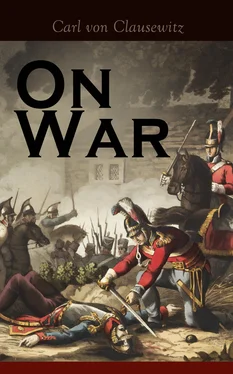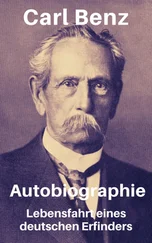But this pious endeavour, if we may use the expression, has unfortunately seldom hitherto presided over critical examinations: the most of them have rather been emanations of a species of vanity—a wish to make a display of ideas.
The first evil which we constantly stumble upon is a lame, totally inadmissible application of certain one-sided systems as of a formal code of laws. But it is never difficult to show the one-sidedness of such systems, and this only requires to be done once to throw discredit for ever on critical judgments which are based on them. We have here to deal with a definite subject, and as the number of possible systems after all can be but small, therefore also they are themselves the lesser evil.
Much greater is the evil which lies in the pompous retinue of technical terms—scientific expressions and metaphors, which these systems carry in their train, and which like a rabble-like the baggage of an Army broken away from its Chief—hang about in all directions. Any critic who has not adopted a system, either because he has not found one to please him, or because he has not yet been able to make himself master of one, will at least occasionally make use of a piece of one, as one would use a ruler, to show the blunders committed by a General. The most of them are incapable of reasoning without using as a help here and there some shreds of scientific military theory. The smallest of these fragments, consisting in mere scientific words and metaphors, are often nothing more than ornamental flourishes of critical narration. Now it is in the nature of things that all technical and scientific expressions which belong to a system lose their propriety, if they ever had any, as soon as they are distorted, and used as general axioms, or as small crystalline talismans, which have more power of demonstration than simple speech.
Thus it has come to pass that our theoretical and critical books, instead of being straightforward, intelligible dissertations, in which the author always knows at least what he says and the reader what he reads, are brimful of these technical terms, which form dark points of interference where author and reader part company. But frequently they are something worse, being nothing but hollow shells without any kernel. The author himself has no clear perception of what he means, contents himself with vague ideas, which if expressed in plain language would be unsatisfactory even to himself.
A third fault in criticism is the misuse of historical examples , and a display of great reading or learning. What the history of the Art of War is we have already said, and we shall further explain our views on examples and on military history in general in special chapters. One fact merely touched upon in a very cursory manner may be used to support the most opposite views, and three or four such facts of the most heterogeneous description, brought together out of the most distant lands and remote times and heaped up, generally distract and bewilder the judgment and understanding without demonstrating anything; for when exposed to the light they turn out to be only trumpery rubbish, made use of to show off the author’s learning.
But what can be gained for practical life by such obscure, partly false, confused arbitrary conceptions? So little is gained that theory on account of them has always been a true antithesis of practice, and frequently a subject of ridicule to those whose soldierly qualities in the field are above question.
But it is impossible that this could have been the case, if theory in simple language, and by natural treatment of those things which constitute the Art of making War, had merely sought to establish just so much as admits of being established; if, avoiding all false pretensions and irrelevant display of scientific forms and historical parallels, it had kept close to the subject, and gone hand in hand with those who must conduct affairs in the field by their own natural genius.
8.Compare Hinterlassene Werke , 2nd edition, vol. iv. p. 276 et seq.
9.Compare Hinterlassene Werke , 2nd edition, vol. iv. p. 107 et seq .
10.Compare Hinterlassene Werke , 2nd edition. vol. vii. p. 193 et seq .
11.“Frage an der Schicksal,” a familiar quotation from Schiller.—TR.
Table of Contents
Examples from history make everything clear, and furnish the best description of proof in the empirical sciences. This applies with more force to the Art of War than to any other. General Scharnhorst, whose handbook is the best ever written on actual War, pronounces historical examples to be of the first importance, and makes an admirable use of them himself. Had he survived the War in which he fell, 12the fourth part of his revised treatise on artillery would have given a still greater proof of the observing and enlightened spirit in which he sifted matters of experience.
But such use of historical examples is rarely made by theoretical writers; the way in which they more commonly make use of them is rather calculated to leave the mind unsatisfied, as well as to offend the understanding. We therefore think it important to bring specially into view the use and abuse of historical examples.
Unquestionably the branches of knowledge which lie at the foundation of the Art of War come under the denomination of empirical sciences; for although they are derived in a great measure from the nature of things, still we can only learn this very nature itself for the most part from experience; and besides that, the practical application is modified by so many circumstances that the effects can never be completely learnt from the mere nature of the means.
The effects of gunpowder, that great agent in our military activity, were only learnt by experience, and up to this hour experiments are continually in progress in order to investigate them more fully. That an iron ball to which powder has given a velocity of 1000 feet in a second, smashes every living thing which it touches in its course is intelligible in itself; experience is not required to tell us that; but in producing this effect how many hundred circumstances are concerned, some of which can only be learnt by experience! And the physical is not the only effect which we have to study, it is the moral which we are in search of, and that can only be ascertained by experience; and there is no other way of learning and appreciating it but by experience. In the middle ages, when firearms were first invented, their effect, owing to their rude make, was materially but trifling compared to what it now is, but their effect morally was much greater. One must have witnessed the firmness of one of those masses taught and led by Buonaparte, under the heaviest and most unintermittent cannonade, in order to understand what troops, hardened by long practice in the field of danger, can do, when by a career of victory they have reached the noble principle of demanding from themselves their utmost efforts. In pure conception no one would believe it. On the other hand, it is well known that there are troops in the service of European Powers at the present moment who would easily be dispersed by a few cannon shots.
But no empirical science, consequently also no theory of the Art of War, can always corroborate its truths by historical proof; it would also be, in some measure, difficult to support experience by single facts. If any means is once found efficacious in War, it is repeated; one nation copies another, the thing becomes the fashion, and in this manner it comes into use, supported by experience, and takes its place in theory, which contents itself with appealing to experience in general in order to show its origin, but not as a verification of its truth.
But it is quite otherwise if experience is to be used in order to overthrow some means in use, to confirm what is doubtful, or introduce something new; then particular examples from history must be quoted as proofs.
Читать дальше












